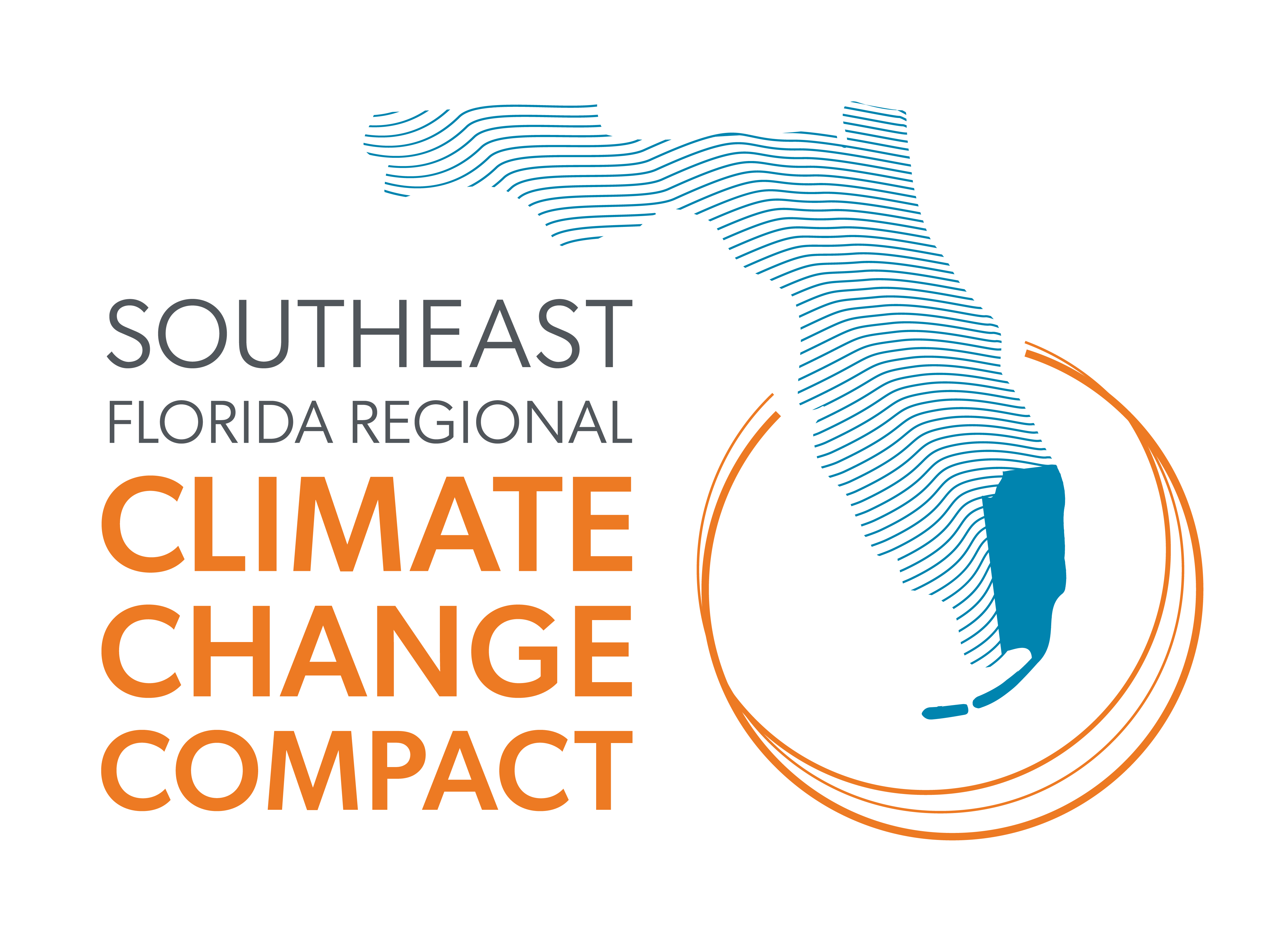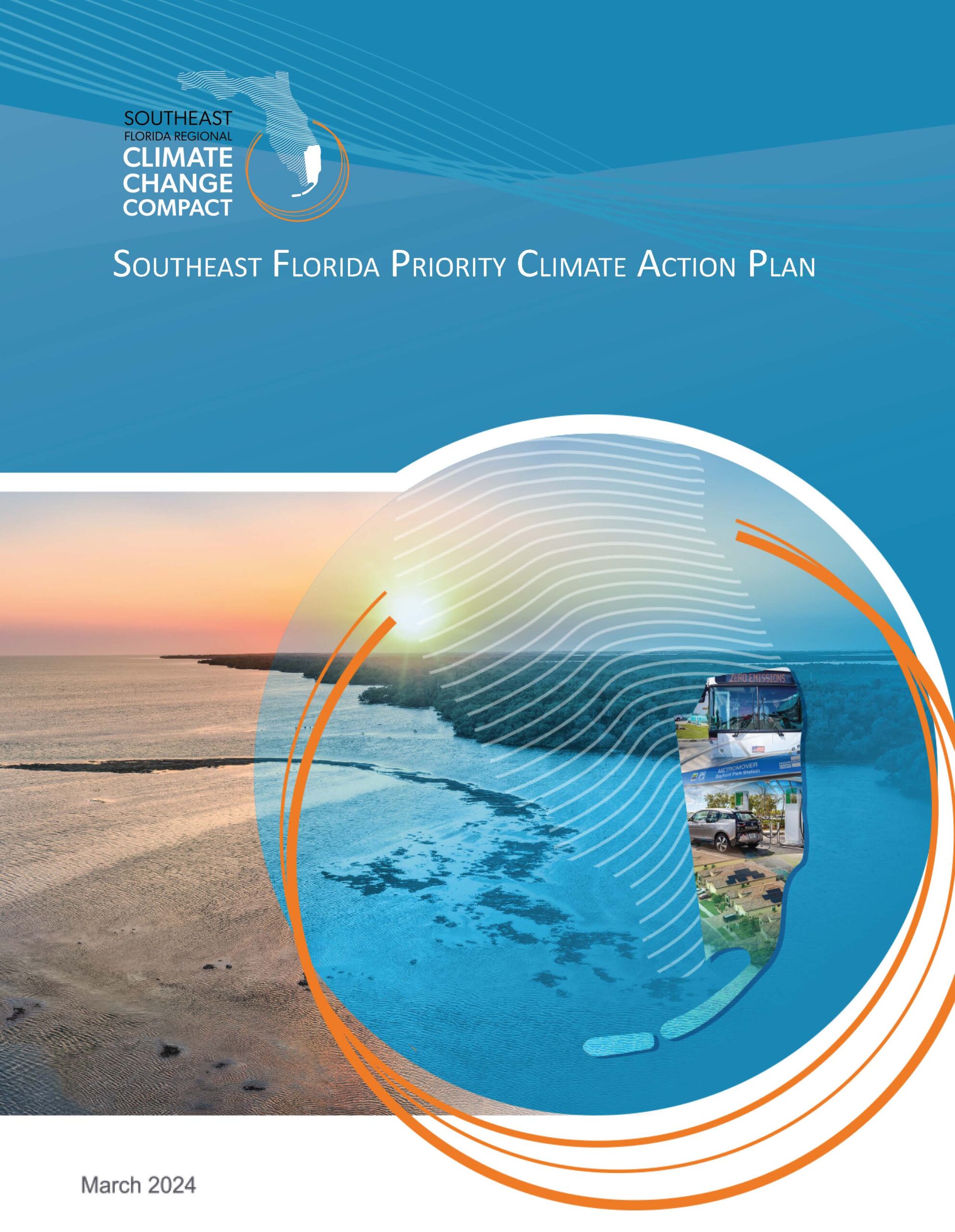
Regional Greenhouse Gas Reduction Plan (Climate Pollution Reduction Grant)
The Compact is leading the development of a regional greenhouse gas reduction plan that will cover the four-county region, inclusive of Broward, Miami-Dade, Monroe, and Palm Beach counties. The plan will be developed in two phases. The initial phase, or ‘Priority Climate Action Plan’, was completed in March of 2024. The final, comprehensive plan (‘Comprehensive Climate Action Plan’) will be complete in December 2025.
The opportunity to develop a first-of-its kind regionally comprehensive greenhouse gas reduction plan has been made possible through the EPA’s Climate Pollution Reduction Grants (CPRG) program, funded by the Inflation Reduction Act. Given the long-term and considerable partnership across the four Compact counties, the Compact’s climate mitigation plan covers the entire geographic scope of the Compact region, inclusive of Monroe County. The grant was officially awarded on August 4, 2023.
Plan Grant Components
The four-year planning grant will result in the development of a Priority Climate Action Plan and a Comprehensive Climate Action Plan for the four-county region, inclusive of a regional greenhouse gas (GHG) inventory, regional emission projections and GHG reduction targets, and a comprehensive set of measurable/quantified mitigation strategies, programs, policies, and projects commensurate with regional emission reduction targets. An analysis of other federal funding opportunities available to support strategies identified will be conducted. Further, the plan will include a comprehensive benefits analysis to ascertain community benefits beyond emission reduction. Finally, a workforce planning analysis will also be conducted to identify economic development needs, challenges, and opportunities.
Priority Climate Action Plan
The Priority Climate Action Plan (PCAP) is now available!
The PCAP report, the first deliverable under the planning grant, covers the entire geographic extent of the four-county Southeast Florida Region (Broward, Miami-Dade, Monroe, and Palm Beach counties), the 109 municipalities within this four-county region, as well as the Miccosukee and Seminole Tribal Governments jurisdictions. The region contains a population of nearly 6.2 million people.
The priority greenhouse gas (GHG) reduction measures contained within this PCAP should be construed as broadly available to any entity within this geographic extent eligible for receiving funding under the EPA’s Climate Pollution Reduction Grants (CPRG) program.
Next Steps
The Compact is actively working on the second phase of the planning grant, the development of the Comprehensive Climate Action Plan (CCAP), which will be complete by December 1, 2025. The CCAP will include all significant GHG sources/sinks across all economic sectors, and will provide comprehensive strategies and emission reduction measures to achieve science-based emission reduction goals.
In November 2024, the Compact’s consultant WSP hosted a series of virtual workshops to identify and capture a comprehensive suite of emission reduction projects, programs, policies/code changes among agencies and partners in the region, with both short-term (2030) and long-term (2050) implementation timeframes. These workshops covered multimodal transportation; fleet, transit, and heavy equipment alternate fuel; commercial energy; residential energy; agriculture; solid waste; carbon sequestration; ports, and airports
All regional stakeholders are invited to submit feedback on the various benefits of the measures included in the plan, such as reducing air pollution and energy bills, improving public health, and supporting workforce development. Your feedback is essential in helping to understand local concerns, priorities, and ideas. This survey will take about 10-15 minutes to complete. We thank you in advance for taking the time to provide your input. Click here to learn more about and begin the survey: https://bit.ly/

